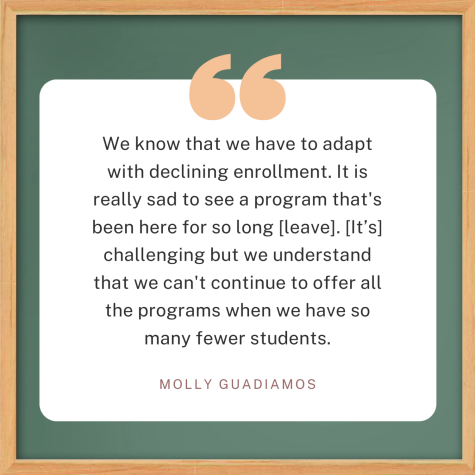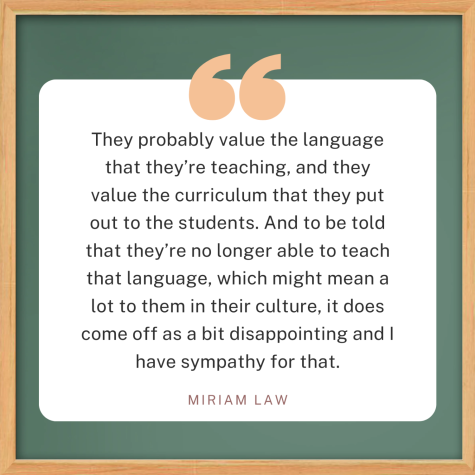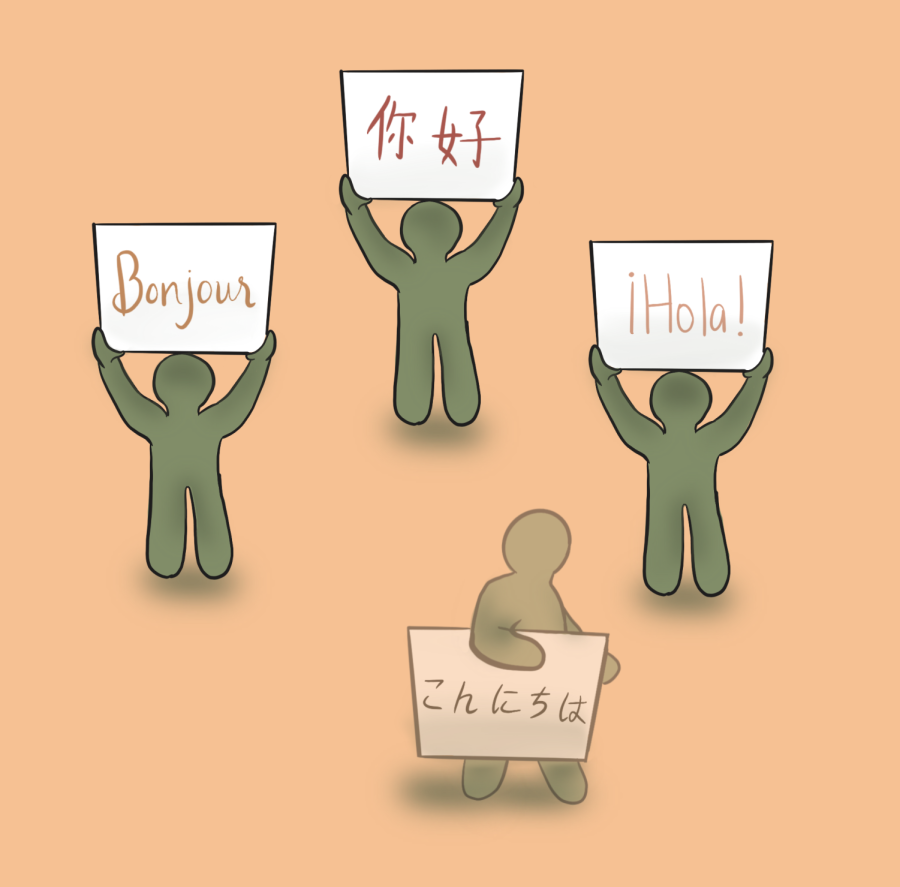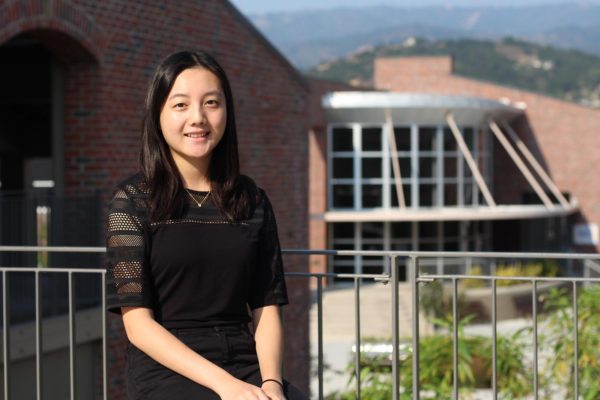FUHSD World Languages to face upcoming changes
MVHS will begin phasing out Japanese language courses in 2024-25
MVHS is set to lose the Japanese language program in the coming years as a result of declining enrollment in the course.
June 1, 2023
FUHSD announced a plan to phase out one language course at each high school starting during the 2024-25 school year as a result of “declining enrollment for several years,” which has ultimately led to overstaffing. With this change, announced April 14, MVHS will lose its Japanese language program in the coming school years.
Although FUHSD has “examined many strategies to continue offering as many course options as possible,” a recent sharp decline in enrollment has led the district to predict a reduction of approximately 2,000 students over the course of the next five years, making it hard to continue offering four languages at each school.
Spanish teacher and World Language Department Lead Molly Guadiamos explains that for each upcoming year, one level of Japanese will be phased out, beginning with Japanese 1 during the 2024-25 school year. Current students enrolled in Japanese would still be able to continue down their language track, but incoming MVHS students will gradually have fewer levels available.
“They would just not offer Japanese 1, so students who are currently in Japanese 1 at Monta Vista will continue to be able to continue to 3, 4 and so on, [and] be able to continue through the program,” Guadiamos said. “Also, if there were students [who take] Japanese 1 at our feeder [schools], if it’s a [rising] eighth grader who was in an equivalent to Japanese 1, they could start in Japanese 2 next [next] year.” listen
Chinese teacher I-Chu Chang became aware of the language course change plan at an informal board meeting last year, although the changes were only theoretical. She states that she was unsure about the effectiveness of the proposals at the time.
“I don’t quite know how the decision was made,” Chang said. “[Last year], we did have some meeting with FUHSD district people [at] MVHS just presenting, [and] asking about our what our opinion about the decline of enrollment [was and] how we feel [as] the language program, and [the] work [that] can be done to resolve the issue.”

FUHSD administration has stated this change will not accompany layoffs, or reduction in force notices, of staff who are affected by the program. Guadiamos adds that Japanese traditionally having smaller numbers at MVHS played an important role in the decision, and emphasized there will still be teaching opportunities for Japanese teachers in the future. For instance, Japanese teachers across the district who are credentialed in other subjects may be transitioned into teaching other courses.
Guadiamos admits that this was a tough decision to make, but reiterates that the conditions of declining enrollment made this a necessary one.
“We know that we have to adapt with declining enrollment,” Guadiamos said. “It is really sad to see a program that’s been here for so long [leave]. It’s really hard to see those kinds of things happening and to have colleagues having to teach other courses. [It’s] challenging but we understand that we can’t continue to offer all the programs when we have so many fewer students.”
Contrastingly, sophomore and AP Japanese student Aruna Venkateswaran addresses the concern that phasing out Japanese may make the language inaccessible to interested students.
“I’m sure that there are some students who were interested in learning Japanese in high school who are [in] middle school right now,” Venkateswaran said. “And [it’s like they’re forced] to take a different language. So students won’t have that opportunity anymore and it changes the way they look at language in high school.”
Junior and Japanese 3 student Miriam Law also shares her concerns for other teachers affected by the program.
“They probably value the language that they’re teaching, and they value the curriculum that they put out to the students,” Law said. “And to be told that they’re no longer able to teach that language, which might mean a lot to them in their culture, it does come off as a bit disappointing and I have sympathy for that.”

Like Guadiamos, Law expresses her sympathy for the situation at hand. She believes the changes came off as surprising considering that a “good amount of people” sign up for each of the languages. Law adds that her Japanese teacher has been teaching for a while and is very compassionate with her students, a sentiment that Venkateswaran shares.
However, Venkateswaran recognizes the finality of the decision and explains that although the changes will not impact her, she remains regretful that Japanese will be no longer offered.
“I feel like we’re such a diverse school that we should have the opportunity to learn different languages, and I think that MVHS was special because Japanese isn’t offered at a lot of high schools,” Venkateswaran said. “Instead of Japanese, I heard it’s Latin, like at Bellarmine. I just thought that MVHS was special for having a different variety of languages, [so] I feel like it’s a little sad.”


















